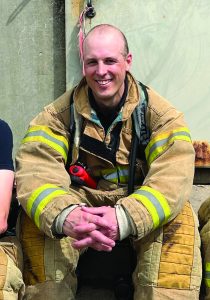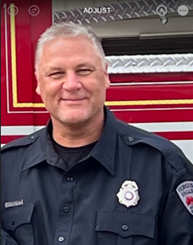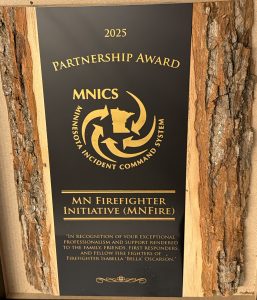
MnFIRE was recently recognized for its swift and compassionate crisis response. On behalf of MnFIRE, Board President Mike Dobesh recently received a 2025 Partnership Award from the Minnesota Incident Command System (MNICS), an interagency group of state and federal partners that manage wildfire and all-risk incidents.
The honor recognizes MnFIRE’s exemplary response and support during the tragic line‑of‑duty death of wildland firefighter Isabella “Bella” Oscarson on September 26, 2025. MnFIRE, along with the organization’s mental health partner PRO Network, was one of the organizations that quickly stepped forward to provide vital resources and emotional support to Bella’s family and the Minnesota wildland fire community.
William Glesener, Minnesota Department of Natural Resources (DNR) wildlife operations supervisor, noted deep appreciation for MnFIRE’s dedication and actions that match the values Bella lived by – teamwork, empathy and unwavering commitment to those who protect our lands and each other.
“We were greatly saddened by firefighter Oscarson’s line-of-duty death a few months ago. Moments like these remind us why MnFIRE’s ability to quickly deploy resources to support families and colleagues is so important,” said Dobesh. “Thank you for this recognition. We continue thinking of her loved ones during this difficult time.”
To learn more about our health and wellness resources for firefighters, including our Peer Support Program and no-cost counseling visits, please visit the Hometown Heroes Assistance Program page or call 888-784-6634.

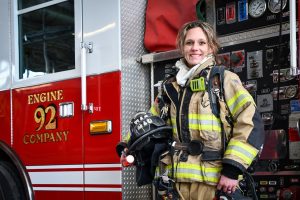
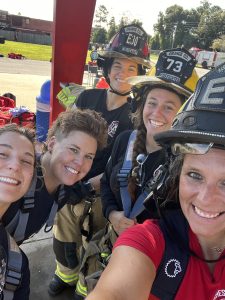
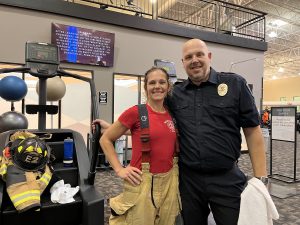
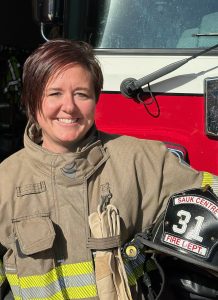 I am a lifelong Sauk Centre resident. I’ve been married to my husband Kelly for 23 years. We have three adult daughters, Greta (22), Ellen (20) and Ava (19). My hobbies include gardening, cheering on the Minnesota Twins, and drinking coffee/socializing with friends. My full-time career is a 911 Dispatcher for the Douglas County Sheriff’s Department in Alexandria, MN. I’ve been dispatching for eight years.
I am a lifelong Sauk Centre resident. I’ve been married to my husband Kelly for 23 years. We have three adult daughters, Greta (22), Ellen (20) and Ava (19). My hobbies include gardening, cheering on the Minnesota Twins, and drinking coffee/socializing with friends. My full-time career is a 911 Dispatcher for the Douglas County Sheriff’s Department in Alexandria, MN. I’ve been dispatching for eight years.